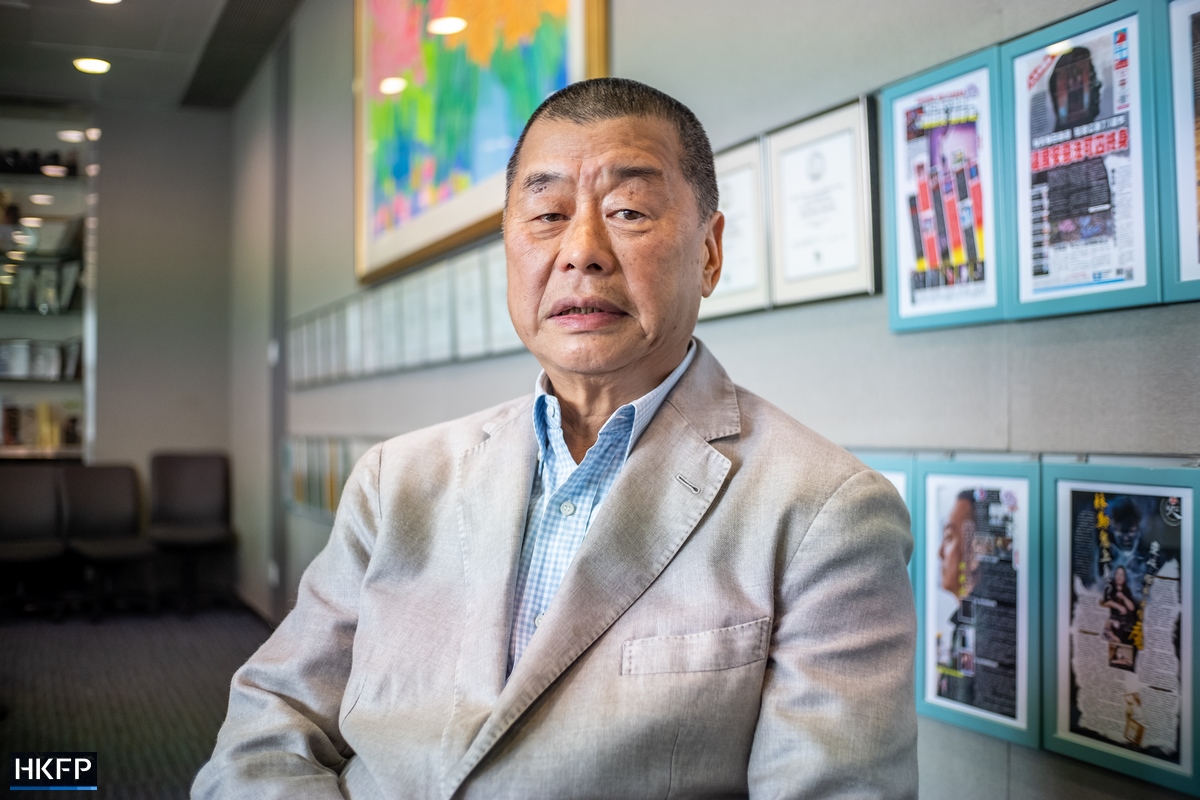Hong Kong media tycoon Jimmy Lai has lost his legal bid to block a national security search warrant of his phones, which he says contain protected journalistic materials.
The ruling by High Court Judge Wilson Chan on Tuesday was made after Lai filed a notice seeking a judicial review earlier this month challenging a national security search warrant approved by Principal Magistrate Peter Law.

The 74-year-old founder of now-defunct pro-democracy tabloid Apple Daily faces charges under the national security law and the colonial-era sedition law, along with six other former staff members and journalists of the tabloid and its parent company Next Digital.
He has been remanded in custody since 2020, and has been sentenced to 20 months in jail over protest-related cases, including over the 2020 banned Tiananmen vigil.
Lai faces two counts of conspiracy to collude with foreign countries or external elements, one count of collusion with foreign forces, and one count of conspiracy to print, publish, sell, offer for sale, distribute, display and/or reproduce seditious publications.
According to Lai’s team, the police confiscated two phones from Lai’s home on August 10, 2020. On the same day, the headquarters of Next Digital and Apple Daily in Tseung Kwan O was raided by over 100 police officers.
Senior counsel Philip Dykes argued in court that there was no provision in the national security law and its implementation rules that allows the protection on journalistic materials to be overridden, or else it would have been explicitly stated.

Dykes also said that the protection of journalistic materials was fundamental to press freedom.
Even if the police wanted to look into the protected materials, Dykes said, the magistrate should have been able to review the materials himself before granting the officers authorisation. In Lai’s case, Law had not seen the materials before granting the search warrant.
However, senior counsel Jenkin Suen, representing the commissioner of police, argued that press freedom did not equate to a complete ban on the disclosure of journalistic materials.
Suen also said that journalistic materials should not be compared with legally privileged materials, as there was no balancing exercise in the consideration of the latter, meaning that those materials could not be disclosed regardless of the public interest in doing so.
‘Specified evidence’
In his ruling on Tuesday, Chan said that the wording of the implementation rules – which state that a national security search warrant authorises the police to seize and inspect “specified evidence” – included journalistic material.

“On a proper interpretation, ‘specified evidence’ is wide enough to cover anything that contains or is likely to contain evidence of an offence endangering national security, including [journalistic material],” Chan said.
The judge also ruled that the sweeping security law and its implementation rule “operate separately and additionally” to the Interpretation and General Clauses Ordinance. Lai’s team relied on the ordinance to argue that unless specified in the respective ordinances, any warrants did not give the power to search or seize journalistic materials.
“By the clear wording of [Article 43 of the National Security Law], the [Standing Committee of the National People’s Congress] self-evidently intended to confer on the Police additional powers in handling cases concerning offences under the NSL,” Chan said.
After the decision was handed down, Chan granted Lai a seven-day stay for his legal team to file an appeal against the decision on the judicial review.
Support HKFP | Policies & Ethics | Error/typo? | Contact Us | Newsletter | Transparency & Annual Report | Apps
Help safeguard press freedom & keep HKFP free for all readers by supporting our team
























